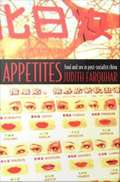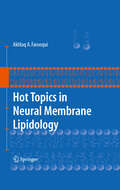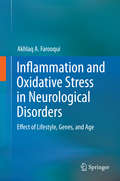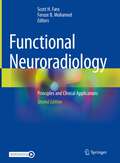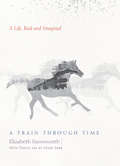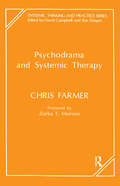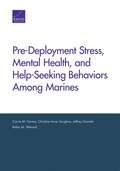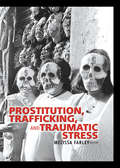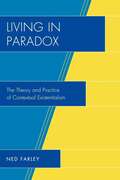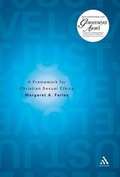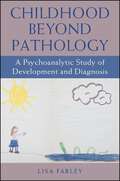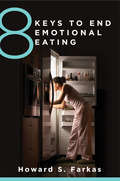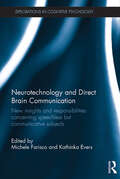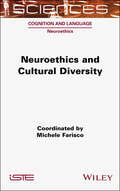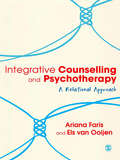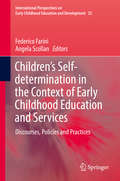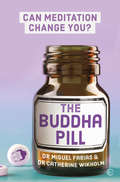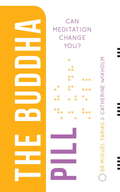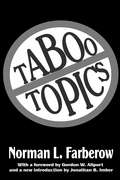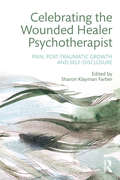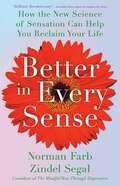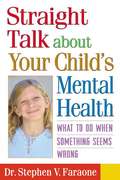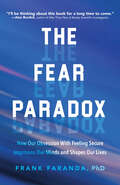- Table View
- List View
Appetites: Food and Sex in Postsocialist China
by Judith FarquharJudith Farquhar's innovative study of medicine and popular culture in modern China reveals the thoroughly political and historical character of pleasure. Ranging over a variety of cultural terrains--fiction, medical texts, film and television, journalism, and observations of clinics and urban daily life in Beijing--Appetites challenges the assumption that the mundane enjoyments of bodily life are natural and unvarying. Farquhar analyzes modern Chinese reflections on embodied existence to show how contemporary appetites are grounded in history. From eating well in improving economic times to memories of the late 1950s famine, from the flavors of traditional Chinese medicine to modernity's private sexual passions, this book argues that embodiment in all its forms must be invented and sustained in public reflections about personal and national life. As much at home in science studies and social theory as in the details of life in Beijing, this account uses anthropology, cultural studies, and literary criticism to read contemporary Chinese life in a materialist and reflexive mode. For both Maoist and market reform periods, this is a story of high culture in appetites, desire in collective life, and politics in the body and its dispositions.
Hot Topics in Neural Membrane Lipidology
by Akhlaq A. FarooquiGlycerophospholipid and sphingolipid-derived lipid mediators facilitate the transfer of messages not only from one cell to another but also from one subcellular organelle to another. These molecules are not only components of neural membranes but also storage depots for lipid mediators. Information on the generation and involvement of lipid mediators in neurological disorders is scattered throughout the literature in the form of original papers and reviews. This book will provide readers with a comprehensive description of glycerophospholipid, sphingolipid and cholesterol-derived lipid mediators and their involvement in neurological disorders.
Inflammation and Oxidative Stress in Neurological Disorders
by Akhlaq A. FarooquiUnless new discoveries are made in the prevention or treatment of stroke, Alzheimer's Disease and depression, the number of patients with these diseases is sure to increase dramatically by the year 2050. Thus, developing strategies to retard or delay the onset of stroke, AD and depression these neurological disorders is of critical important. The present monograph will provide current and comprehensive information on the relationship between neuroinflammation and oxidative stress in age-related neurological disorders at the molecular level. The information described in this monograph on lifestyle (diet and exercise), genes and age is intended to facilitate and promote new discoveries for the treatment of age-related neurological disorders.
Functional Neuroradiology: Principles and Clinical Applications
by Scott H. Faro Feroze B. MohamedThis new edition fully updates and expands Faro and Mohamed’s Functional Neuroradiology, a gold standard, comprehensive introduction to the state-of-the-art functional imaging in neuroradiology, including the physical principles and clinical applications of Diffusion, Perfusion, Permeability, MR spectroscopy, Positron Emission Tomography, BOLD fMRI and Diffusion Tensor Imaging. With chapters written by internationally distinguished neuroradiologists, neurologists, psychiatrists, cognitive neuroscientists, and physicists, Functional Neuroradiology is divided into 12 major sections, including: Diffusion and Perfusion Imaging, Magnetic Resonance Spectroscopy and Chemical Exchange Saturation Transfer Imaging, Multi-Modality Functional Neuroradiology, BOLD Functional MRI, Diffusion Tensor Imaging, Presurgical Brain Tumor Mapping, Emerging neuroimaging techniques, Functional Spine and Hydrocephalus imaging, and Neuroanatomical Gray and White matter Brain Atlases. This second edition is fully updated throughout and includes more than 15 new chapters on topics such as: Brain tumor Radiogenomics, CNS Tumor Surveillance and Functional MR Perfusion Imaging, CNS Machine Learning, Focused Ultrasound therapy, TBI Sports Related Injury, and CNS Lymphatic system. By offering readers a complete overview of functional imaging modalities and techniques currently used in patient diagnosis and management, as well as emerging technology, Functional Neuroradiology is a vital information source for physicians and cognitive neuroscientists involved in daily practice and research.
A Train through Time: A Life, Real and Imagined
by Elizabeth Farnsworth"It has been a long time since I read a book so moving, plainspoken, and beautiful." —Michael Chabon, Pulitzer Prize winner and author of MoonglowHow much of our memory is constructed by imagination? And how does memory shape our lives? As a nine–year–old, Elizabeth Farnsworth struggled to understand the loss of her mother. On a cross–country trip with her father, the heartsick child searches for her mother at train stations along the way. Even more, she confronts mysteries: death, time, and a locked compartment on the train.Weaving a child’s experiences with memories from reporting in danger zones like Cambodia and Iraq, Farnsworth explores how she came to cover mass death and disaster. While she never breaks the tone of a curious investigator, she easily moves between her nine–year–old self and the experienced journalist. She openly confronts the impact of her childhood on the route her life has taken. And, as she provides one beautifully crafted depiction after another, we share her journey, coming to know the acclaimed reporter as she discovers herself.
Psychodrama and Systemic Therapy (The Systemic Thinking and Practice Series)
by Chris FarmerIt is now increasingly recognized that psychodrama provides a valid and useful tool in many different contexts; equally, practitioners in a wide variety of fields are acknowledging the benefits that a systems thinking approach can bring to their work. This book unites the two by describing the author's work over a number of years. The author provides a lucid exposition of his own systemic approach to psychodrama, both theoretically and in practical clinical terms. The final section, which discusses systemic approaches to psychiatric care in general, puts the book in a wider context, and will make it of interest to a wide range of mental health professionals.
Pre-Deployment Stress, Mental Health, and Help-Seeking Behaviors Among Marines
by Carrie M. Farmer Christine Anne Vaughan Jeffrey Garnett Robin M. WeinickAs part of an evaluation of the Marine Corps Operational Stress Control and Readiness (OSCAR) program, this report describes the methods and findings of a large survey of marines who were preparing for a deployment to Iraq or Afghanistan in 2010 or 2011. The results are among the first to shed light on the pre-deployment mental health status of marines, as well as the social resources they draw on when coping with stress and their attitudes about seeking help for stress-related problems.
Recommended Standards for Delivering High-Quality Care to Veterans with Invisible Wounds
by Carrie M. Farmer Sierra Smucker Natalie Ernecoff Hamad Al-IbrahimThe authors identified ten standards for the delivery of high-quality care for veterans with posttraumatic stress disorder, depression, substance use disorders, and mild traumatic brain injury. They also provide considerations for implementing and disseminating these standards as a first step to improve access to high-quality care for veterans with invisible wounds.
Prostitution, Trafficking, and Traumatic Stress
by PhD, Melissa FarleyProstitution, Trafficking, and Traumatic Stress offers the reader an analysis of prostitution and trafficking as organized interpersonal violence. Even in academia, law, and public health, prostitution is often misunderstood as "sex work." The book&’s 32 contributors offer clinical examples, analysis, and original research that cou
Living in Paradox: The Theory and Practice of Contextual Existentialism
by Ned FarleyThis book focuses on the emergence of contextual existential theory and practice from more traditional existential psychology. Farley addresses the diversity of humankind and the need to be culturally aware as we attempt to address the dilemmas that present themselves to us in our daily lives.
Just Love: A Framework for Christian Sexual Ethics
by Margaret A. Farley FarleyThis long-awaited book by one of American Christianity's foremost ethicists proposes a framework for sexual ethics whereby justice is the criterion for all loving, including love that is related to sexual activity and relationships. It begins with historical and cross-cultural explorations, then addresses the large questions of embodiment, gender, and sexuality, and finally delineates the justice framework for sexual ethics. Though" Just Love"s particular focus is Christian sexual ethics, Farleys framework is broad enough to have relevance for multiple traditions. Also covered are specific issues in sexual ethics, including same-sex relationships, marriage and family, divorce and second marriage, celibacy, and sex and its negativities.
Childhood beyond Pathology: A Psychoanalytic Study of Development and Diagnosis (SUNY series, Transforming Subjects: Psychoanalysis, Culture, and Studies in Education)
by Lisa FarleyWinner of the 2020 Outstanding Book Award presented by Division B (Curriculum Studies) of the American Educational Research AssociationWinner of the 2019 Critics' Choice Book Award presented by the American Educational Studies AssociationChildhood beyond Pathology offers an account of the ways that psychoanalytic concepts can inform ongoing challenges of representing development, belonging, and relationality, with a focus on debates over how children should be treated, what they might know, and who they should become. Drawing from fiction, clinical studies, and courtroom and classroom contexts, Lisa Farley explores a series of five conceptual figures—the replacement child, the neurodiverse child, the counterfeit child, the child heir of historical trauma, and the gender divergent child—with a keen eye to discussions of social justice and human dignity. The book reveals the emotional situations, social tensions, and political issues that shape the meaning of childhood, and focuses on what happens when a child departs from normative scripts of development. Through thought-provoking analysis, Farley develops themes that include childhood loss, the myth of innocence, the problem of diagnosis, the subject of racial hatred, the meaning of a good fight, and gender embodiment. She draws extensively on psychoanalytic concepts to show how the fantasy of the child advancing through lockstep stages fails to account for the child as symbolic of the conflicts of entering into the social world. Childhood beyond Pathology suggests we reconsider developmental understandings of childhood by honoring the elusive qualities of inner life.
8 Keys to End Emotional Eating (8 Keys to Mental Health #0)
by Howard FarkasBring an end to emotional eating by getting to the root of the problem. Most books about emotional eating tend to focus on how to strengthen self-restraint or how to identify what triggers it. The former can make the problem worse, while the latter may be different each time it occurs. Both approaches fail to help emotional eaters understand why they feel compelled to do something that they don’t want to do in the first place. This understanding is the key to changing this behavior. Howard Farkas, who has more than two decades of professional and teaching experience as a clinical psychologist specializing in emotional eating, explains the underlying motive that drives the behavior: emotional eating is not a passive failure of self-control, but an active impulse to reject the control of dieting. This defiant need “to be bad” usually leaves the person feeling guilty and anxious about their eating, and recommitting to their diet until the cycle repeats, and the compulsive eating recurs. 8 Keys to End Emotional Eating provides a detailed plan for breaking this pattern. By explaining the root cause that drives the desire to binge, Farkas offers practical skills to help you learn to change your mindset about dieting and end the impulse to binge. His road map for the future will help readers maintain healthy eating habits for years to come.
Neurotechnology and Direct Brain Communication: New insights and responsibilities concerning speechless but communicative subjects (Explorations in Cognitive Psychology)
by Michele Farisco Kathinka EversNeurotechnology and Direct Brain Communication focuses on recent neuroscientific investigations of infant brains and of patients with disorders of consciousness (DOC), both of which are at the forefront of contemporary neuroscience. The prospective use of neurotechnology to access mental states in these subjects, including neuroimaging, brain simulation, and brain computer interfaces, offers new opportunities for clinicians and researchers, but has also received specific attention from philosophical, scientific, ethical, and legal points of view. This book offers the first systematic assessment of these issues, investigating the tools neurotechnology offers to care for verbally non-communicative subjects and suggesting a multidisciplinary approach to the ethical and legal implications of ordinary and experimental practices. The book is divided into three parts: the first and second focus on the scientific and clinical implications of neurological tools for DOC patient and infant care. With reference to these developments, the third and final part presents the case for re-evaluating classical ethical and legal concepts, such as authority, informed consent, and privacy. Neurotechnology and Direct Brain Communication will appeal to researchers and postgraduate students in the fields of cognitive science, medical ethics, medical technology, and the philosophy of the mind. With implications for patient care, it will also be a useful resource for clinicians, medical centres, and health practitioners.
Neuroethics and Cultural Diversity
by Michele FariscoThere is a growing discussion concerning the relationship between neuroethical reflections and cultural diversity, which is among the most impactful factors in shaping neuroethics, both as a scientific discipline and a social enterprise. The impacts of culture on science and its public perception are particularly relevant to neuroethics, which aims to facilitate the creation of an interface between neuroscience and society at large. Time is ripe for neuroethics to review the influence of the culturally specific contexts from which it originated (i.e. North America and Western Europe) and to also include other cultural perspectives in the discussion. This book illustrates a convergent approach among different cultures in identifying the main issues raised by neuroscience and emerging technologies. This should be taken as a starting point for advancing in the search for shared solutions, which are, if not definitive, at least sufficiently reliable to be translated into democratic deliberative processes.
Integrative Counselling & Psychotherapy: A Relational Approach
by Ariana Faris Dr Els Van OoijenThis is an accessible and user friendly guide to the theory and practice of relational counselling and psychotherapy. It offers a meta-theoretical framework for the integration of the three most popular counselling and psychotherapy modalities: humanistic, psychodynamic and Cognitive-behavioural including mindfulness and compassion based approaches This exciting new text: - outlines the history of integration in the field of psychotherapy and counselling - clarifies the nature of psychotherapeutic integration - defines different models of integration - provides a clear and rich discussion of what it means to work relationally - outlines a coherent and flexible framework for practice, in terms of theory as well as technique - demonstrates how this framework can be successfully utilised both in brief and long term therapy for a wide range of client issues and problems - provides a detailed guide to working with the Relational-Integrative Model (RIM) for a range of professional issues, including ethics, research, supervision, therapist self-care and personal development Brimming with vivid case examples, mind-maps and therapeutic dialogue, this invaluable book will help develop the theoretical knowledge and skills base of students, trainers and practitioners alike.
Children’s Self-determination in the Context of Early Childhood Education and Services: Discourses, Policies and Practices (International Perspectives on Early Childhood Education and Development #25)
by Federico Farini Angela ScollanThis book investigates the position of young children’s self-determination within a range of social contexts, such as education, social care, mass-media, health, politics, law and the family. It brings to the fore the voices of the children in the present, with their interests, agendas and rights. Based on original primary research, the chapters tackle hegemonic discourses on children’s self-determination as well as current policies and practices. They address a broad range of topics, from the planning of role-play to national policies, from the use of digital technologies for pedagogy to children’s health and well-being, and from democratic practices in the classroom to the preservation of traditional family values. The book presents case studies to unravel how childhood and young children’s self-determination are constructed at the intersection with intergenerational relationships. Coming from different disciplines and using a diverse range of methodological traditions, the contributions in the volume eventually converge to generate a rich, complex and multi-layered analysis of contemporary cultures of childhood and young children’s rights.
The Buddha Pill: Can Meditation Change You?
by Miguel Farias Dr Catherine WikholmMillions of people meditate daily but can meditative practices really make us ‘better’ people? In The Buddha Pill, pioneering psychologists Dr Miguel Farias and Catherine Wikholm put meditation and mindfulness under the microscope. Separating fact from fiction, they reveal what scientific research – including their groundbreaking study on yoga and meditation with prisoners – tells us about the benefits and limitations of these techniques for improving our lives. As well as illuminating the potential, the authors argue that these practices may have unexpected consequences, and that peace and happiness may not always be the end result. Offering a compelling examination of research on transcendental meditation to recent brain-imaging studies on the effects of mindfulness and yoga, and with fascinating contributions from spiritual teachers and therapists, Farias and Wikholm weave together a unique story about the science and the delusions of personal change.
The Buddha Pill
by Miguel Farias Catherine WikholmMillions of people meditate daily but can meditative practices really make us 'better' people? In The Buddha Pill, pioneering psychologists Dr Miguel Farias and Catherine Wikholm put meditation and mindfulness under the microscope. Separating fact from fiction, they reveal what scientific research - including their groundbreaking study on yoga and meditation with prisoners - tells us about the benefits and limitations of these techniques for improving our lives. As well as illuminating the potential, the authors argue that these practices may have unexpected consequences, and that peace and happiness may not always be the end result. Offering a compelling examination of research on transcendental meditation to recent brain-imaging studies on the effects of mindfulness and yoga, and with fascinating contributions from spiritual teachers and therapists, Farias and Wikholm weave together a unique story about the science and the delusions of personal change.
Taboo Topics: The Atherton Press Behavioral Science Series
by Norman L. FarberowWhy is it so hard to investigate taboo topics? A myriad of forces shape and fashion human action, reaction, thought, and feeling, and these are not always well understood. Norman L. Farberow argues that culture itself provides structure for its members, developing in a well-defined way the rules to which they will conform. Such rules find expression not only in written laws and regulations but include, and most often stem from, unwritten folkways, customs, and especially taboos, the subject of this book.The researchers reporting in this volume take no position on the nature of a taboo itself, but concentrate on the difficulty in investigating taboos. As members of society and human beings, they do make judgments and personal investments. Thus, when taboos continue or develop without useful society-enriching functions or facilitate self-destructive activities, they raise questions about why they persist.Such topics include many areas‘some social, such as sex, death, and peace; others more academic, such as parapsychology, graphology, religion, and hypnosis. Peace and the public are included in the discussion because they are emotion-laden areas and powerful and important factors in a shrinking world and expanding universe. Peace, especially, has begun to be looked upon with suspicion perhaps a real commentary on our times. This probing collection will be sure to interest sociologists, anthropologists, and all other social scientists.
Celebrating the Wounded Healer Psychotherapist: Pain, Post-Traumatic Growth and Self-Disclosure
by Sharon Klayman FarberWhy would someone decide to become a psychotherapist? It is well-known within the field that psychoanalysts and psychotherapists are often drawn to their future professions as a result of early traumatic experiences and being helped by their own psychoanalytic treatment. While dedicating their lives to relieving emotional suffering without being judgmental, they fear compromising their reputations if they publicly acknowledge such suffering in themselves. This phenomenon is nearly universal among those in the helping professions, yet there are few books dedicated to the issue. In this innovative book, Farber and a distinguished range of contributors examine how the role of the ‘wounded healer’ was instrumental in the formulation of psychoanalysis, and how using their own woundedness can help clinicians work more effectively with their patients, and advance theory in a more informed manner. Celebrating the Wounded Healer Psychotherapist will be of interest to psychoanalysts and psychoanalytic psychotherapists, graduate students in clinical disciplines including psychology, social work, ministry/chaplaincy and nursing, as well as the general public.
Better in Every Sense: How the New Science of Sensation Can Help You Reclaim Your Life
by Norman Farb Zindel SegalRenowned neuroscientist Dr. Norman Farb and clinical psychologist Dr. Zindel Segal reveal how to break out of negative patterns by engaging your senses. For many of us, daily life has stopped making sense. Super-efficient routines that once served us well now stress us out. Patterns of judgment and negative thinking lead to downward emotional spirals. For others, life has simply lost its spark. Where does change come from when habit lets you down? Whether we&’re struggling with a problem, a bad habit, or life in general, we often think we need to be resilient by &“toughing it out&” or &“trying harder.&” But when we do that, our brains double down on the thinking patterns that got us stuck in the first place—even when they clearly aren&’t working for us. Fortunately, the science of sensation provides the key. In Better in Every Sense, neuroscientist Norman Farb and clinical psychologist Zindel Segal explain that the brain has two networks—the rapid problem-solving (habit) network and the sensory network, which is devoted to fresh insight. By tuning into new and everyday sensations—from the feeling of our feet on a crowded street to the sound of birdsong in the park—we can engage the sensory network. When we&’re stressed or stuck, we can pause to notice and feel the dynamic, vibrant world around us and boost our resilience, well-being, health, and creativity wherever we are, in the moment. Grounded in decades of scientific research and filled with simple exercises and practical mental techniques for mastering &“sense foraging,&” Better in Every Sense explores the power of sensory experiences to liberate us from our ruts and dead ends—and help us successfully handle all of life&’s challenges.
Genetics of Mental Disorders: What Practitioners and Students Need to Know
by Stephen V. Faraone Ming T. Tsuang Debby W. TangIntroduces ideas about inherited genetically based mental disorders and how they combine with environmental factors. thinks about mental disorders with insight.
Straight Talk about Your Child's Mental Health
by Stephen V. FaraoneParents reach for dog-eared copies of Dr. Spock when their child has a rash or the flu, but when "moodiness" lingers or worrisome behavior problems grow, they have nowhere to turn for answers or reassurance. Now, in this compassionate resource, prominent Harvard researcher Dr. Stephen V. Faraone gives parents the tools they need to look clearly at how a child is feeling, thinking, and behaving and make wise decisions about when to call for professional help. Cues and questions teach readers to become scientific observers of their child, and vital facts about common disorders help them distinguish between normal variations in speech development and Asperger syndrome, between moodiness that's just a phase and depression, between childhood fears and the symptoms of anxiety. Knowing what to ask and tell the professionals, from the pediatrician to a mental health specialist, will help parents ensure a complete and accurate diagnosis. Filled with handy sidebars, charts, and checklists, the book also teaches parents to weigh treatment options to determine what's best for their child.
The Fear Paradox: How Our Obsession With Feeling Secure Imprisons Our Minds and Shapes Our Lives
by Frank FarandaFear in Contemporary Society and its Consequences“A delightfully fearless and deeply sensitive examination of that most primal and formative human experience.” ―Alan Burdick, author of Why Time Flies: A Mostly Scientific Investigation#1 New Release in Evolutionary Psychology and BuddhismFor anyone suffering from global pandemic anxiety caused by the new coronavirus, comes an exploration of one of the most powerful and primitive human emotions.A history and culture of fear. Over the last five hundred years, life for the average human being has changed dramatically―plagues no longer routinely wipe out entire families, and we no longer empty our chamber pots into the street. But, progress has shown that no matter how many dangers we neutralize, new ones emerge. Why? Because our level of fear remains constant.Fear in contemporary society. For years, Dr. Frank Faranda studied a state of fearfulness in his patients―an evolutionary state that relentlessly drove them toward avoidance, alienation, hypercriticism, hyper-control, and eventually, depression and anxiety. He began to wonder what they were afraid of, and how embedded these fears might be in contemporary society. This book aims to break us free from what he found.Fear not. Faranda’s Fear Paradox is simple―even though fear has a prime directive to keep us safe and comfortable, it has grown into the single greatest threat to humanity and collective survival. As a consequence, fear is embedded in our culture, creating new dangers and inciting isolation. With rising anxiety levels, now is the time to shine a light on our deepest fears and examine the society that fear is creating.But fear not―inside, you’ll learn about:The fear of pain and the fear of the unknownHow fear has driven progress in the WestThe price paid to eradicate fearRead books like Fear, The Culture of Fear, or The Science of Fear? Then The Fear Paradox is your next read. Come on, what are you afraid of?
